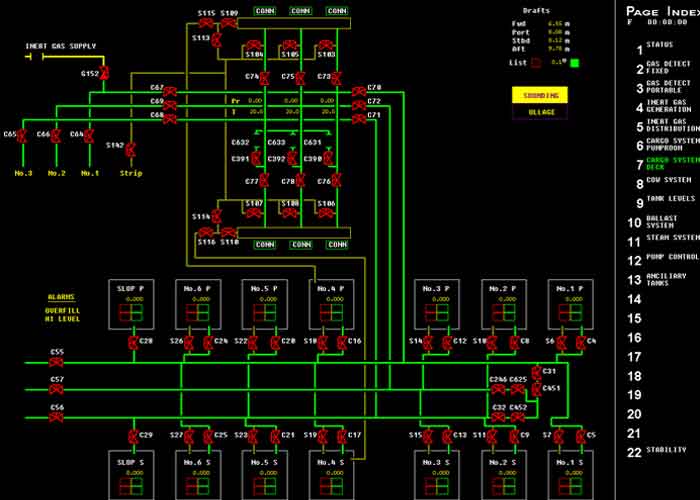
| Duration |
|
|---|---|
| Eligibility |
|
| Course_Fees |
|
| Course Schedule |
(subject to availability of candidates "minimum 3") |
| Documents Required (SCANNED Copies) |
|
WE DO NOT CONDUCT THE LCHS COURSE ANYMORE
Course Description
- Liquid Cargo Handling Simulator (Oil) - Operational Level (LCHS-O) course meets the requirements laid down in Regulation I/12, Section A-I/12 and Table A-II/1, Section A-V/1-1, Code B-I/12.71 of the STCW Convention, as amended in 2010 and all additional criteria specified in the STCW convention, applicable to the issue of the certificate.
- The IMO model course 2.06 is used as a basic guideline for the conduct of this course.
- The Liquid Cargo Handling Simulator course (Oil) is approved by the Directorate General of Shipping (approval No. - TR/A/59/2001)
- It meets the requirements laid down in Regulation I/12, Section A-I/12 and Table A-II/1, Section A-V/1-1, Code B-I/12.71 of the STCW Convention, as amended in 2010 and all additional criteria specified in the STCW convention, applicable to the issue of the certificate.
- The IMO model course 2.06 is used as a basic guideline for the conduct of this course.
Aims and Objectives
- The aim of the LCHS course at Operational level is to develop understanding of the chemical and physical properties of Crude oil and its Products leading to an appreciation of the hazards involved in cargo handling.
- To consider the design and development of Oil Tankers with particular emphasis on cargo handling, ballast, venting, inert gas system.
Upon completion of the course the trainees will :-
- Be familiar with different cargo operational equipment, instrumentation and controls.
- Have a greater awareness of the need for proper pre-planning, the use of checklists and the time scales involved in the various cargo handling operations.
- Have an enhanced awareness to apply proper and safe procedures at all times when carrying out the various operations on board an oil tanker.
- Gain experience in identifying operational problems and solving them.
- Show improvement in the ability to make decisions which promotes safety and protects the environment.
- In short the Trainee should be able to understand and take direct charge of all operations on an oil tanker in a Dry dock to Dry dock cycle.
The course curriculum consists of all operations normally associated with an oil tanker in a dry dock to dry dock cycle.
The course is a practical one and consists of a series of exercises structured around the operation of the cargo and ballast installation of an oil tanker and carried out on the Liquid Cargo Handling simulator.
The Simulator
Relying on their experience of over 25 years in Developing and implementing training systems Indian Maritime College choose to install the Liquid Cargo Operations Simulator, a joint development between Warsash Maritime Centre - UK and M/s. Ship Analytics - USA.
The purpose of the simulator is to provide very realistic real-time simulation of the thermodynamic and fluid properties of the liquids and gases involved, together with the process control systems used in the storage and handling of potentially hazardous bulk liquids.